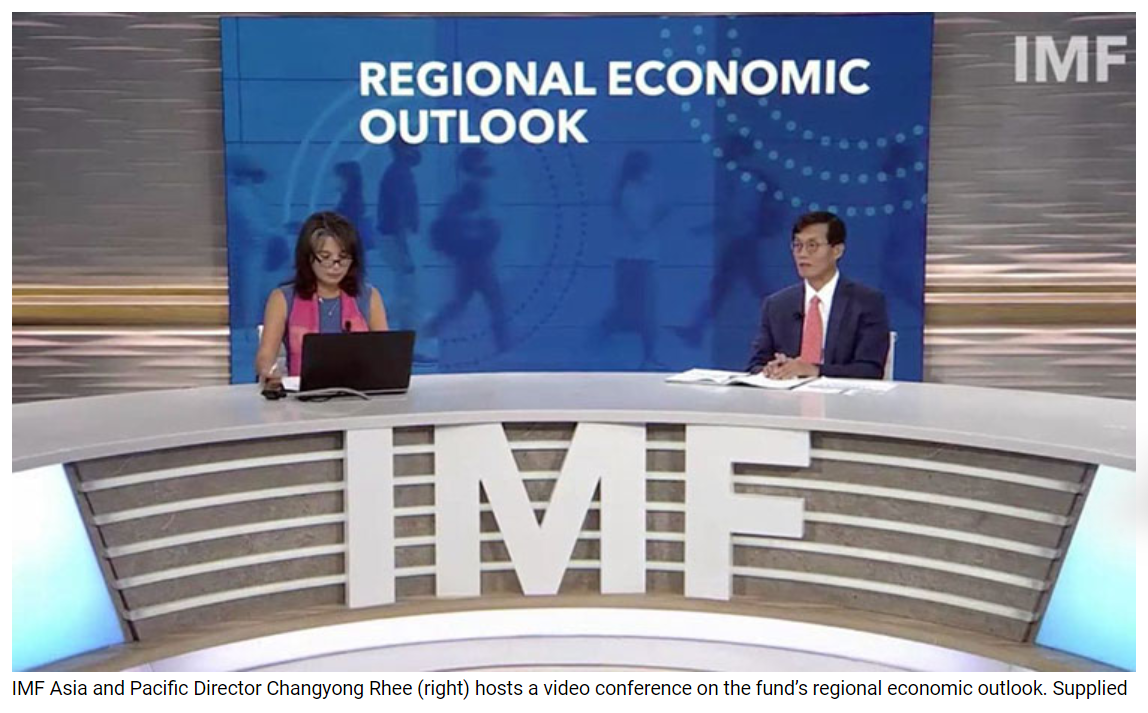Asia-Pacific predicted growth cut by IMF to 6.5%
The International Monetary Fund has cut its forecast for Asia-Pacific economic growth this year to 6.5 percent from 7.6 percent in April. The downgrade is the biggest of any global region. The IMF said the Coronavirus pandemic took a turn for the worse in the spring, with the Delta variant causing new spikes in infections. It says this has taken its toll on growth.
While its forecasts for advanced Asian economies were largely unchanged most of the downgrade came from lower expected growth in the 10 ASEAN nations and India.
“The Covid-19 pandemic is expected to leave medium-term scars to Asian economies,” said IMF Asia and Pacific Director Changyong Rhee.
“Divergence in economic prospects across countries, sectors, income and skill levels in age and gender remain the most important feature of the ongoing recovery,” he said.
The fund says next year the region will see slightly faster growth than anticipated because of the speed of vaccination campaigns. It forecasts 5.7 percent growth in gross domestic product (GDP) in 2022 compared with April’s forecast of 5.3 percent. The IMF left its 2023 forecast unchanged at 5 percent.
It said risks are tilted to the downside because of uncertainty over the course of the pandemic, the possibility of vaccine-resistant virus variants, supply chain disruptions and the potential negative impact of US monetary normalisation. It said widespread vaccination should be the top priority for Asia-Pacific governments.
Cambodia has fully vaccinated 80 percent of its 16 million population, allowing the Kingdom to reopen and rebuild its economy but the IMF warned that GDP will take a hit this year because of border closures.
“The outlook for tourism remains subdued affecting the recovery in Cambodia,” Rhee said.
The IMF reduced its forecast for Cambodia’s 2021 GDP to 1.9 percent from 4.1 percent in April. It also cut its 2022 GDP forecast by 0.3 percentage points to 5.7 percent but raised its 2023 prediction to 6.4 percent from 6.3 percent in its last outlook.
Cambodia takes over the chair of ASEAN next year and the IMF said the bloc’s priority should be to cut non-tariff barriers to trade. It said central banks should maintain accommodative policies to speed the recovery but should be prepared to act quickly if inflation starts to spike.
Changyong Rhee gives a fuller commentary on the IMF’s regional outlook in today’s Opinion section on page 9


 English
English




